#B2B CRM Software
Text
Automate Your Sales Process with CRM: A Comprehensive Guide
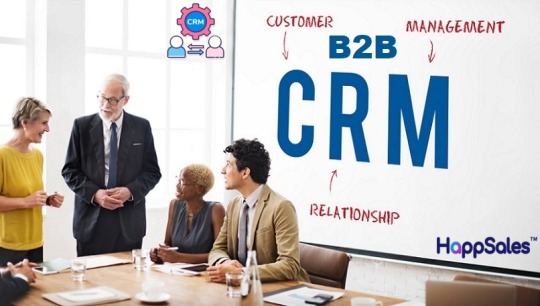
In the fast-paced world of sales, efficiency is key. Sales automation Customer Relationship Management (CRM) systems are powerful tools that can streamline your sales process, improve productivity, and boost revenue. In this guide, we’ll explore what sales automation CRM is, its benefits, and how you can implement it in your business.
What is Sales Automation CRM?
Sales automation CRM is a software solution that helps businesses automate their sales processes, from lead generation to closing deals. It combines customer relationship management (CRM) with automation tools to streamline tasks such as lead scoring, email marketing, and pipeline management. By automating these repetitive tasks, sales teams can focus more on building relationships with prospects and closing deals.
Benefits of Sales Automation CRM
Improved Efficiency: Sales automation CRM eliminates manual tasks, such as data entry and lead tracking, saving your team valuable time and allowing them to focus on selling.
Better Lead Management: With sales automation CRM, you can easily track and prioritize leads based on their likelihood to convert, ensuring that your team is focusing on the most promising opportunities.
Increased Sales Productivity: By automating repetitive tasks, your sales team can be more productive, allowing them to handle more leads and close more deals.
Enhanced Customer Relationships: Sales automation CRM allows you to personalize your interactions with customers, leading to stronger relationships and increased customer loyalty.
Improved Sales Forecasting: By tracking sales data and performance metrics, sales automation CRM can help you make more accurate sales forecasts, allowing you to better plan for the future.
Implementing Sales Automation CRM
Identify Your Needs: Before implementing a sales automation CRM, identify your specific needs and goals. Determine which processes you want to automate and what features are essential for your business.
Choose the Right CRM: There are many sales automation CRM systems available, so it’s essential to choose one that aligns with your business requirements. Look for a CRM that offers the features you need, such as lead management, email automation, and reporting tools.
Integrate with Existing Systems: If you already use other software systems, such as marketing automation or customer support software, ensure that your sales automation CRM can integrate with them seamlessly. This will help you streamline your processes and improve efficiency.
Train Your Team: Once you’ve chosen a sales automation CRM, provide training to your team to ensure they understand how to use the new system effectively. This will help them adapt to the changes quickly and maximize the benefits of the CRM.
Monitor and Optimize: Regularly monitor your sales automation CRM’s performance and gather feedback from your team. Use this information to optimize your processes and make improvements where necessary.
Conclusion
Sales automation CRM is a powerful tool that can help businesses streamline their sales processes, improve efficiency, and boost revenue. By automating repetitive tasks, such as lead tracking and email marketing, sales teams can focus more on building relationships with prospects and closing deals. Implementing a sales automation CRM requires careful planning and consideration, but the benefits are well worth the effort. With the right CRM in place, your sales team can achieve new levels of success and drive your business forward.
Original Source: Sales Productivity
#b2b crm software#best crm for sales reps#Sales Productivity#sales automation crm#sales pipeline crm#crm for sales team#b2b sales tools
0 notes
Text
TOP B2B CRM software | SalesTown , HubSpot CRM , Zoho CRM etc
Looking For B2B CRM Software For Sales Growth in 2024, connect with SalesTown CRM for the Best B2B CRM Software in (march 2024).
#b2b crm system#crm for b2b#b2b crm solutions#best crm for b2b#b2b crm software#b2b crm#best b2b crm
0 notes
Text
Best B2B CRM Software: SalesTown CRM
In the bustling world of B2B businesses, the importance of Customer Relationship Management (CRM) software cannot be overstated. These systems are the backbone of effective communication, seamless workflows, and long-term relationship building. Among the myriad of options available, one stands out as a beacon of excellence: SalesTown sales CRM. Let's dive into why SalesTown CRM is the top choice for various industries, including small businesses, real estate agencies, travel agencies, hotels, and even those seeking a WhatsApp-integrated CRM solution.
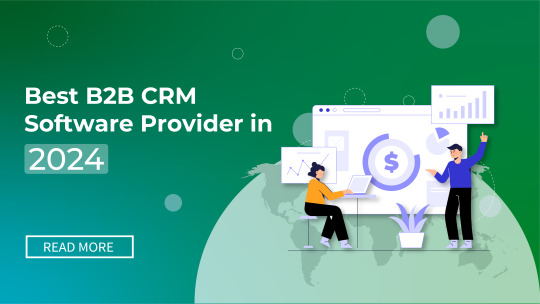
1. Best CRM for B2B:
SalesTown CRM is renowned for its tailored solutions for Best crm for B2B interactions. It understands the complexities of B2B relationships, offering features like lead scoring, pipeline management, and collaborative tools that empower teams to work cohesively towards closing deals and nurturing long-term partnerships.
2. Best CRM Software for Small Businesses:
Small businesses often have unique needs, requiring robust CRM solutions without the complexity and cost of enterprise-level systems. SalesTown CRM caters perfectly to this niche, offering scalable plans, intuitive interfaces, and essential features like contact management, email integration, and customizable pipelines, all designed to fuel growth without overwhelming resources.
Read more: best crm software for small business
3. Real Estate CRM Software:
In the dynamic world of real estate, effective management of leads, properties, and client interactions is paramount. SalesTown CRM offers specialized features tailored for real estate professionals, including property listings management, automated email campaigns for property updates, client segmentation based on preferences, and integration with real estate portals, streamlining the entire process from lead to close.
Read more: CRM for Real estate investor
4. Best CRM for Travel Agency:
Travel agencies thrive on building and maintaining relationships with clients, tour operators, and suppliers. SalesTown CRM recognizes the unique needs of this industry, providing tools for itinerary management, client preferences tracking, commission tracking, and integrations with booking platforms. These features empower travel agencies to deliver personalized experiences and exceptional service, driving customer loyalty and repeat business.
Read more: Best CRM for travel agency
5. Hotel CRM System:
Hotels rely on CRM systems to manage guest interactions, streamline bookings, and enhance guest satisfaction. SalesTown CRM offers a comprehensive solution for hotels, enabling reservation management, guest history tracking, loyalty program management, and integration with Property Management Systems (PMS). With SalesTown CRM, hotels can deliver personalized guest experiences, optimize occupancy rates, and increase revenue through targeted marketing campaigns.
Read more: Hotel CRM System
6. WhatsApp CRM:
In today's digital age, communication via messaging platforms like WhatsApp is essential for business success. SalesTown CRM integrates seamlessly with WhatsApp, allowing businesses to engage with clients in their preferred channel. From sending automated messages to managing inquiries and providing timely support, SalesTown CRM enables businesses to leverage the power of WhatsApp for effective communication and relationship building.
Read more: WhatsApp CRM
In conclusion,
SalesTown CRM stands tall as the epitome of excellence in B2B CRM software. Whether you're a small business, real estate agency, travel agency, hotel, or seeking a WhatsApp-integrated solution, SalesTown CRM offers the perfect blend of features, functionality, and flexibility to meet your unique needs. With SalesTown CRM, empower your team, delight your clients, and drive business success like never before.
Rad more : Disadvantages of crm
#crm system b2b#b2b crm system#crm for b2b#b2b crm solutions#best crm for b2b#b2b crm software#b2b crm
0 notes
Text
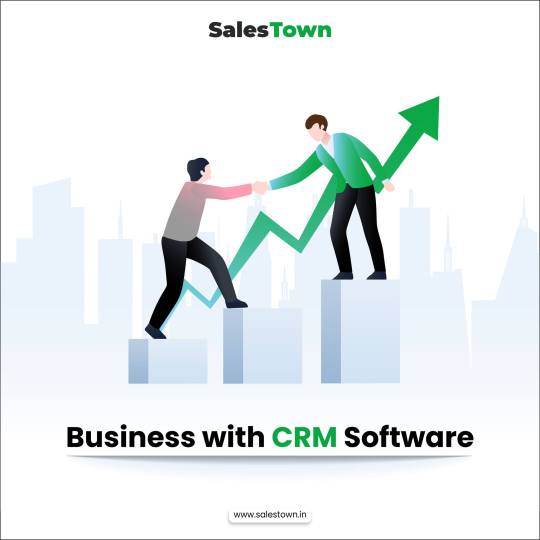
SalesTown CRM Software. The Best B2B CRM Software Provider is a cutting-edge solution that excels in enhancing business-to-business customer relationship management. With a robust platform, it seamlessly integrates essential tools for contact management, lead tracking, and sales automation. This provider stands out for its user-friendly interface, customization options, and advanced analytics, empowering businesses to optimize their interactions with clients, streamline workflows, and drive growth. Whether managing complex sales processes or fostering long-term customer relationships, this B2B CRM Software Provider offers a comprehensive and efficient solution for businesses seeking to elevate their customer engagement strategies.
1 note
·
View note
Text
0 notes
Link
0 notes
Text
B2B CRM Software
The B2B crm Software helps sales executives qualify B2B leads, prioritize communications, and keep less-mature leads from dropping out of the pipeline, resulting in only a few missed opportunities.
visit on : https://www.lighthousecrm.com/crm-software-for-b2b-customer-portal.html
0 notes
Link
SalezShark b2b CRM solution plays a pivotal role in automating repetitive, time-consuming, and tedious manual activities. How? Suppose you want to send 5000 emails each day. Are you going to plunk down and compose 5K emails each day? No, you are not!
SalezShark gives prebuilt templates, scheduling tools, and in-built spam score checkers to guarantee your emails are shipped off the compose targets at the ideal opportunity. Furthermore, our email domain reputation means that your email will wind up in the inbox more than 95% of the time.
SalezShark b2b CRM solutions allow team leaders and managers to track their sales team's performance by tracking important KPIs (key performance indicators, for example, leads changed over, total customer value generated, lifetime sales, etc. You can also see your sales team's lifetime interactions with the leads, as well the latter's status across the customer lifecycle. Finally, the team can meet up to utilize the historical data and reports to create forecasts to investigate issues, put forth goals, and plan ahead.
To know more check Salezshark B2b software
Call us: +91 901 573 1800 or drop a mail to: [email protected]
0 notes
Text
Why Tour Operators Love helloGTX Travel CRM
Tour operators need effective solutions in today's fast-paced travel business to improve customer experiences, streamline operations, and stay ahead of the competition. GTX Travel CRM meets that need. It is a comprehensive travel software solution developed by Catabatic Technology customized to the unique requirements of travel businesses. We'll look into GTX's popularity among tour operators in this blog post, along with how it can completely change the way you run your travel agency.
1. Streamlined Operations
With Travel CRM, tour operators can streamline their day-to-day operations, from managing bookings and itineraries to handling customer inquiries and payments. The platform's intuitive interface and automation features make it easy to manage all aspects of your business from a single dashboard.
2. Enhanced Customer Experiences
GTX allows tour operators to provide personalized experiences to their customers, from customized itineraries to real-time updates and notifications. By understanding your customers' preferences and behavior, you can create tailored travel experiences that exceed their expectations.
3. Integrated Booking System
helloGTX Travel CRM Software comes with an integrated booking system that allows tour operators to manage bookings, reservations, and inventory in real time. Whether you're offering guided tours, hotel accommodations, or transportation services, it makes it easy to manage all aspects of your business from one platform.
4. Advanced Reporting and Analytics
With GTX's advanced reporting and analytics tools, tour operators can gain valuable insights into their business performance, customer behavior, and market trends. By analyzing this data, you can make informed decisions and optimize your operations for maximum efficiency and profitability.
5. Mobile Accessibility
It is fully mobile-responsive, allowing tour operators to manage their business on the go. Whether you're in the office, on the road, or out in the field, GTX offers a mobile app that anyone can access from any device with an internet connection, ensuring that you're always connected to your business.
6. Dedicated Customer Support
It provides dedicated customer support to help tour operators get the most out of the platform. Whether you need technical assistance, training, or advice on best practices, our team of experts is here to help you every step of the way.
Conclusion
In a competitive and rapidly evolving industry, tour operators need a reliable and efficient software solution to stay ahead of the curve. With Travel CRM, tour operators can streamline their operations, enhance customer experiences, and grow their business like never before. Discover why tour operators love helloGTX and revolutionize the way you manage your travel business today.
Call to Action
Ready to take your travel business to the next level? Schedule a demo and see how it can transform your operations, enhance customer experiences, and drive business growth.
Schedule a Demo Now
#travel software#best travel crm#best crm for small business#b2b travel software#crm company#crm development#travel crm with api#Travel CRM software#GTX travel CRM#helloGTX Travel CRM Software#travel agent in delhi#b2b travel agency
2 notes
·
View notes
Text
CRM Software In UAE
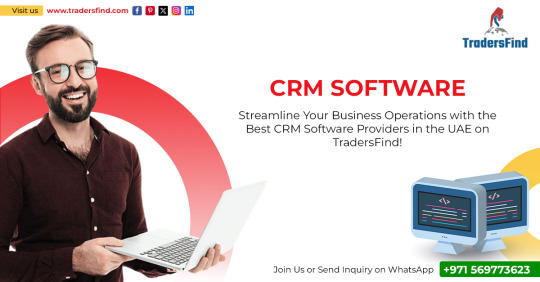
Looking for a reliable CRM software solution to manage your customer relationships effectively? TradersFind is your one-stop destination to discover top CRM software providers in UAE.
Our platform connects buyers with leading CRM software companies, offering a range of solutions to meet your business needs. Whether you're a small startup or a large enterprise, our directory features providers with solutions tailored to your requirements.
Benefits of Choosing CRM Software from TradersFind:
Enhanced Customer Relationships: Improve customer engagement and satisfaction with personalized interactions and timely follow-ups.
Increased Efficiency: Streamline your sales, marketing, and customer service processes with a centralized CRM system.
Data Security: Ensure the safety and confidentiality of your customer data with secure CRM software solutions.
Scalability: Choose from scalable CRM solutions that can grow with your business, adapting to your evolving needs.
Analytics and Reporting: Gain valuable insights into your customer behavior and business performance with advanced analytics tools.
Connect with us on WhatsApp at +971 56 977 3623 to explore the best CRM software options for your business and find the perfect provider to meet your needs.
Visit TradersFind today and discover a wide range of CRM software providers in the UAE. Experience the convenience of finding the right CRM solution for your business, all in one platform.
Visit -https://www.tradersfind.com/category/crm-software
#crm#datacenter#softwares#business#CRMSoftware#CustomerRelationshipManagement#BusinessEfficiency#DataSecurity#ScalableSolutions#Analytics#TradersFind#B2B#UAE#Dubai#AbuDhabi#Sharjah#Ajman#RasAlKhaimah
3 notes
·
View notes
Text
b2b lead generation and appointment setting services
Artificial Intelligence (AI) is an established concept that has gained significant traction in various areas of business management, marketing, and sales. One particular area where AI has made notable advancements is lead generation for B2B marketing. Many online lead-generation software options leverage AI technology to enhance and streamline the lead-generation process.
Artificial intelligence, in combination with lead generation software, harnesses the power of advanced platforms and algorithms. This powerful combination enables businesses to gather and analyze relevant data, leveraging past sales, marketing strategies, and market conditions. By doing so, it enhances customer relationship management, provides valuable insights for decision-making, and helps identify profitable investments, ultimately maximizing return on investment
Best Practices For B2B Appointment Setting List
Generating leads is imperative for a B2B company’s growth. One of the most effective ways to convert them is through appointment setting services. But just because it’s practical doesn’t mean it’s easy.
Creating and booking an appointment is a struggle in itself. Therefore, we will discuss the best practices for B2B appointment setting to be more productive, efficient, and thriving. So stay tuned and start reading!
Getting the data
Getting the data means prospecting. First, gather information about your prospects. Then, the salesperson will procure the prospect’s background information, industry sector, departments & personnel information, and contact information. Getting the information is directly linked to verifying the data.
Verifying the data
After gathering the data, you should verify the information. You can ascertain whether the prospect is qualified based on the collected information. This verification helps you prioritize and categorize the prospects.
Nowadays, various information about a person, like bio-data, social media accounts, and other account details, are collected online. This information can be natural or fake. Hence, verification of information is crucial. This verification process is done using prospecting and sales intelligence tools. Also, the gathering of prospects’ information is done using CRM tools and lead generation tools.
Research your prospect
You can schedule an appointment in advance. However, you need to understand your prospect before making an appointment. Prospects tend to ignore or hang up sale calls, and salespeople are least pleasant with cold calling. The salesperson communicates with different types of prospects and has to face objections and rejections.
Also Read: Proven Tips for Your Prospects Research
So, the salesperson must do homework about the prospect’s business and background. First, you must find their problem and whether your product/service solves it. Then, based on your imagined scenarios, the question-and-answer session assists the salesperson during appointments.
Understanding the pain points
Knowing your prospects’ pain points is essential for a successful sales meeting. Understanding what’s frustrating and keeping them up at night can tailor your pitch to address their needs. To determine your prospect’s pain points, you must research beforehand.
Talk to your customer service team, read reviews online, and ask your current customers about their experience with your product or service. Armed with this information, you’ll be ready to have a meaningful conversation with your prospects and show them that you’re invested in helping them solve their problem.
Do an outreach
In this step, you will try connecting with your prospect via different channels. These channels include mobile, email, and social media, also known as communication platforms. They are crucial for B2B appointment settings. You can use cadence or sequence to reach your prospect. Don’t try to follow templates or copy-paste the content for cadence or sequence.
You can develop innovative and engaging content to grab the attention of prospects. Two-way communication is vital because you can listen attentively, engage actively, and identify your prospect’s concern. Finally, create a lasting impression that makes your prospect look forward to the next appointment.
Make an online presence
Developing an impactful online presence is more critical than the prospecting process and creating network strategies. Salespersons can engage with prospects by following, commenting on, and liking their social media and other online accounts. This strategy helps them build a presence before their prospects and create a relationship with them.
The online presence helps you smooth out your work more than the first time you connect with them as a stranger. It is like a small but powerful action that allows you to lay the groundwork for booking an appointment with them.
#appointment setting#b2b lead generation#crm#lead magnet#booking software#sales enablement#sales leads
2 notes
·
View notes
Text
The Ultimate Reference Guide to Help Choose the Right CRM
Introduction
Every business is unique in many ways, and so is the industry it operates in.
Choosing the right CRM for your business can be a daunting task. There are many different types of CRMs in the market designed to solve specific challenges. It is very important for you to prioritize your needs and then objectively look at all the parameters before you decide the right CRM for you and your team.
This guide is put together to explain the various types of CRMs that exist in the market, what do they specifically solve, which CRMs you should evaluate for your business, and finally what are the parameters you should consider while choosing the right CRM software for your business.
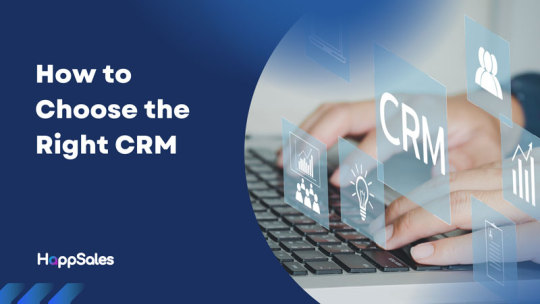
Why Do Companies Need CRM Software?
CRM software (Customer Relationship Management) investment is one of the most strategic decisions a company makes. The right CRM can deliver a huge competitive advantage to help companies outgrow competition and gain market-share.
A CRM system helps automate sales, marketing and service operations. These departments need to manage a lot of data and information pertaining to their leads, client details, deal information, tasks and activities, etc.
Most companies in their initial days generally track all this information in various spreadsheets, word docs and sticky notes. Over a period of time, this unstructured and unorganized data breeds business inefficiencies and hinders business growth.
Lack of CRM prevents organizations be proactive in their client engagements; thereby hampering client relationships and revenue growth. Companies also end up losing a lot of critical information about their clients and deals; which could have delivered them a competitive edge. Last but not the least, the lack of the right information pulls down your team’s productivity and their ability to efficiently meet client expectations.
It is extremely important for companies to plug these holes in their business operations and lay the foundation for future growth. Most studies have proven that the right CRM can give a boost of up to 50% in your growth.
What Are The Different Types of CRM software?
To be able to choose the right CRM, it is important to understand the various types of CRM software available in the market.
Deployment: On-Premise CRM v/s Cloud CRM
Generally, CRM systems are of two types depending on the type of deployment – On-Premise CRM and Cloud CRM software
On-Premise CRM software:
As the name suggests, on-premise CRM software systems get deployed within the company premises. The necessary infrastructure, hardware, application software, and database application are installed in the company’s data-center.
On-premise software involves huge capital investments and costs. The costs include infrastructure, hardware, networking, application software, and database costs.
You also need to consider the cost to hire and retain a dedicated IT team that can manage your IT infrastructure and business applications. In most cases, these companies solely depend of their own IT staff for supporting its users and change requests that come up from time to time.
The other challenge with on-premise CRM applications is that you will need to constantly plan for updates and upgrades of your systems. Only then you will be able to avail the latest capabilities and features. Also, these updates are extremely critical to remove security vulnerabilities that could come up from time to time.
These upgrades are applicable to your hardware systems, CRM applications, and database software. At that point in time, one needs to also keep in mind the compatibility and interoperability aspects between these systems.
If not planned well, on-premise CRM applications can lead to a lot of downtime and outages; thereby adversely impacting your cost of business operations.
While making your decision, it is important that you consider all these parameters and then arrive at the Total-Cost-of-Ownership (TCO). It is not a good idea to blindly look at only the costs shared by the software vendor. I am sure you would like to avoid future surprises after you embark on a project like this.
Many traditional companies still use on-premise CRM systems. Companies in Banking & Financial Services (BFSI) and Government entities generally prefer on-premise software to comply with data regulations and data privacy norms.
Cloud CRM software:
Unlike On-Premise CRM, the Cloud CRM application is not deployed within your premises. They are hosted and managed in the cloud infrastructure.
In this case, the total cost of ownership (TCO) is much lower than that of On-Premise software. You need not commit any upfront capital cost for in-house infrastructure or software applications. Cloud CRM applications are available on subscription based on pay per use model. Also, this model will allow you to scale-up or scale-down easily depending on your business needs.
You need not spend a lot of money on software upgrades and updates that is generally witnessed with On-Premise CRM. You also avoid any downtime-related costs due to these upgrade projects. The Cloud CRM vendors will seamlessly push these updates making sure you are always on the latest version.
Category: B2B CRM v/s B2C CRM
One of the important criteria to decide on the right best CRM for B2B sales is to consider the type of clients you work with. The way to analyse this is to look at who pays for your products or services. At a very high level, these get categorized in to two –
B2B clients: you raise your invoices on companies or legal entities; they are the ones who pay you
B2C clients: you raise your invoices on individuals; end-consumers make the payments to you
The needs of B2B clients and B2C clients are very different. It is important that you select your CRM on this basis to make sure you get the best out of your CRM initiative.
B2B CRMs are designed and built to enable long-term client relationships to maximize customer lifetime value (LTV); unlike B2C CRMs that’s designed to support high volume transactional businesses. B2B buyers are very rational and cautious due to higher perceived risks. Whereas, B2C buyers are impulsive and emotional.
B2B CRMs allow you to manage multiple stake-holders, influencers and decision-makers at the client’s place. This may not be a priority for B2C clients.
B2B CRMs support very high-touch complex sales engagements with long sales cycles unlike transactional short sales-cycles in B2C.
Last but not the least, B2B CRMs help you to automate your Accounts Receivables (AR), Quotation Management, Order Management, and post-sales Service operations which are not supported by B2C CRMs.
Department: Marketing vs Sales vs Service
Based on its operational use, CRMs are designed for various LoBs (line-of-business) and departments like Marketing, Sales, Service, Customer Success etc.
The needs of these departments are quite different and it is important that you select your CRM keeping their objectives in mind.
Marketing CRM: is designed for helping with large-scale marketing campaigns. The main objective of a Marketing CRM is lead generation, also called demand generation.
Sales CRM: is designed to accelerate end-to-end sales operations all the way from lead management to deal closure coupled with order management process. Main objectives of a Sales CRM are to improve deal conversions, sales productivity and sales efficiency. It also helps with sales activities and tasks.
Service CRM: is used by clients to automate post-sales and service operations. It is useful to manage service tickets, AMC management and timely service visits.
Few CRMs like HappSales support a combination of these. It supports other departments like Accounts Receivables (AR) and Customer Success also through its unique integrated Account Management CRM framework
Industry: vertical-specific
As mentioned before, different industry verticals have their own unique needs. For example, a company operating in the Hotel industry would want support with guest loyalty and guest onboarding. Educational institutions would want to improve student engagements and acquisition. Hospitals focus on patient management and patient loyalty.
So, it becomes important for you to make a list of your objectives that might be specific to your industry and then make a decision based on the solution fitment.
Usage: Web-based CRM vs Mobile CRM
As per HBR, conventional CRMs have a very high failure rate. The main reason for this is due to poor adoption by the end-users who find these very boring, cumbersome and time-consuming.
Mobile CRMs can help address these challenges, especially given the fact that an average person spends over four hours per day on their smartphones nowadays.
Moreover, Mobile CRMs can engage the users better, and help them to capture and fetch information with ease. It is a great way to empower your reps with a productivity tool that can give them the flexibility and freedom to manage their business efficiently.
HappSales is the only voice-enabled Mobile CRM that leverages Machine Learning and NLP technologies to help improve productivity by leaps and bounds. This is made possible through a unique personal-assistant called Ami.
Mobile CRM apps also offer other capabilities like business-card scanning, easy attendance management, GPS support, etc. which are very useful for on-the-move reps.
Original Source: Choose the Right CRM
#best sales crm software#best b2b crm software#sales crm software#best crm for b2b sales#b2b crm software
0 notes
Text
Best CRM Software For Hotel Industry
Discover Salestown CRM, the ultimate solution tailored for Best CRM Software For Hotel Industry. Streamlining guest interactions, reservations, and personalized services, Salestown offers intuitive tools for managing guest preferences and booking history. With seamless communication and comprehensive guest data management, this CRM optimizes guest satisfaction and loyalty. Elevate your hotel's operational efficiency and guest experience with Sales CRM, designed to enhance every aspect of hospitality management.
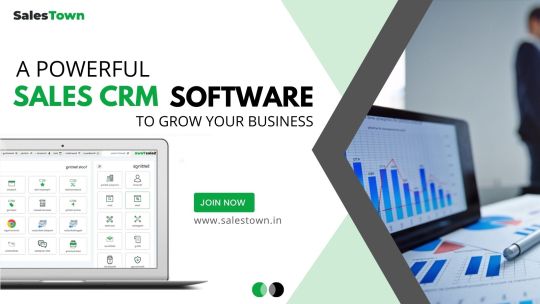
#Best crm software for small business#Disadvantages of crm#benefits of crm#sales crm#CRM Software For Hotel Industry#crm real estate#Best CRM for Service Industry#b2b crm software
0 notes
Text
Wie CRM-Beratung Ihren Geschäftserfolg sichert
In der heutigen, schnelllebigen Geschäftswelt ist die effektive Pflege von Kundenbeziehungen der Schlüssel zum Erfolg. Kunden erwarten mehr als nur ein gutes Produkt oder eine Dienstleistung – sie wünschen sich ein personalisiertes Erlebnis und exzellenten Service. Genau hier setzt die CRM-Beratung an und bietet Unternehmen die Möglichkeit, ihre Kundenbeziehungen strategisch zu verbessern und dadurch ihren langfristigen Erfolg zu sichern.…Weiterlesen

#crm beratung#crm software#b2b crm#sales excellence#business consultancy#customersx#business consulting firm
0 notes
Text
How Integrating CRM With Email Marketing Maximizes Your ROI
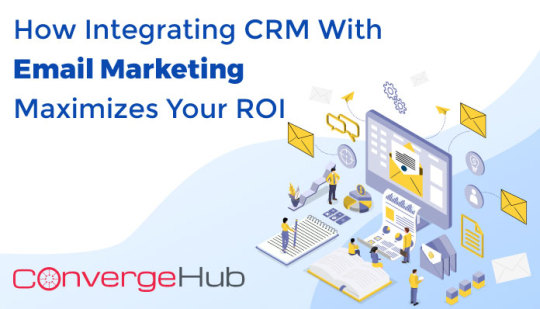
While email marketing can have multi-faceted advantages over a business, it can have double the effect with a credible CRM solution. It is already an established fact that integration between quality software has the high potential to produce 10x results compared to independent solutions. A CRM that aims to provide an all-in-all sales solution for a business must cater to software integration to enhance its efficiency. B2B marketing automation tools such as an email marketing solution when paired up with CRM software can boost your revenue to a great extent.
In this article, we will be talking about the integration of email marketing automation tools with CRM software, how it can benefit your business, and some simple steps for the integration. Let us learn about it in detail.
Understanding email marketing integration with a CRM
An email marketing solution when integrated with customer relation management software, allows users to leverage the power of email marketing from a single space provided by the CRM. Using a CRM with email marketing integration means you will be creating, managing, and automating your email campaigns with the help of your CRM instead of individual tools for sending bulk emails.
This integration allows you to do several things that are otherwise not easily achievable. Here is a list of a few:
• Gather and retain more customer information
With this integration, you can collect more customer information and store them. Email marketing allows you to gain direct access to information about highly potential customers from different customer touchpoints.
• Segment and customize your emails
You can segment your customers in order to personalize your emails based on the buying history, behavior, and preferences of your customers.
• Monitor and measure the effectiveness of the campaigns
The integration also allows you to track the performance of your email campaigns, thus empowering you to measure the success rates of the emails for your business goals.
• Foster long-term relationships with your customers
It supports your business to establish and maintain long-term relationships with your customers, finally turning them into loyal advocates of your brand. You will have more numbers of customer contacts to work with easily accessible from the CRM platform. This enables you to handle a large set of customers without investing in many resources.
Benefits of email marketing integration with CRM
Among the numerous benefits of marketing automation tools, here is a list of the advantages that a CRM solution can provide when paired up with an email marketing tool.
• Enhanced marketing efficiency
You can automate your tasks related to your email campaigns when integrated with your CRM database. An automated email marketing tool that fetches data directly from the CRM database minimizes human error almost to null and also curtails any data redundancy. This is because all your cross-functional teams access and manage the same set of information from the same database. There is a diminished waste of time and resources that goes behind data research and finding out the correct information. The result is better productivity with better business outcomes.
• Precision in customer segmentation
A regular email service provider fails to provide you with the scope of customer segmentation based on complex data which is present in the case of a CRM integrated with an email marketing tool. With such an integration you will be able to segment your email contact list for intricate data. This in turn empowers you to send more relevant and directed messages to your customers.
• More targeted customization
With 4 billion email users out there, you need to target your customers carefully. CRM and email marketing integration allows you to better personalize your messages through dynamic content based on the CRM data. The dynamic fields are mostly the customer’s names, and offerings including products, services, or promotions.
• Real-time insights
Connecting your CRM data with your email marketing efforts allows you to track and measure the analytics in real time. With this feature of the integrated software you can now measure your sales outcomes along with your customer satisfaction at any point in time.
• Boosted sales
The final result of CRM integration with B2B marketing automation tools such as an email marketing solution is increased sales. All the parameters mentioned above push a business towards growth and that is the boosted revenue. Moreover, by connecting your CRM data with your preferred email marketing tool, you can effortlessly go for campaigns for cross-selling and upselling.
Steps to integrate email marketing tool with CRM
Here is a simple breakdown of the process involved in the integration for you to follow and do it successfully:
1. Identify your integration objectives
First and foremost, you need to identify and list your objectives of the integration. It is crucial to clearly identify your integration goals so that you can effectively guide the integration efforts. Further, this also helps you to make necessary changes in the integration especially when your objectives do not align with your course of action. There are certain specifics you need to focus on to ensure successful integration, let us understand them:
• Streamlined lead management will help you to reap more from the integration.
• For more relevant and targeted email campaigns, use the data from your CRM and segment your audience.
• You can leverage the analytics from the CRM to create more personalized messages enhancing customer satisfaction and retention.
2. Secure accurate and consistent data
The quality of data along with consistency determines the success rate of email marketing efforts. Thus, it is necessary to ensure a consistent flow of organized and reliable data before your integration is under process. Ensuring that you have clean and trustworthy data will enable your business to meet specific customer needs and thus add value to the company’s growth.
Some tips to ensure high-quality data:
• Automation helps you to detect duplicate data. Most effective CRM platforms come with automation tools for duplicate detection. You can leverage this feature to identify and manage potential duplicates without your manual resources getting involved.
• Keep your data updated so that every time your campaigns come up with the latest and most useful information for your customers.
• You need to perform regular data check-ups for your CRM to ensure effective email marketing campaigns. Schedule timely reviews to detect any data inconsistency or inaccuracies.
• Ensure a seamless flow of information through real-time updates and scheduled syncs.
3. Refine and tailor your email strategies
You can leverage the power of insights from your CRM and ensure personalized emails that target the right customers with the right messages. Aim for segmentation and personalization to directly address your customer’s individual buying behavior and preferences. Detailed segmentation based on purchase history, engagement level, and demographic information can help you to improve your email marketing efforts.
Conclusion
All said and done, now that you have learned about all the information on the benefits of CRM integration with email marketing tools along with the steps required to run a successful integration, it is high time you learn about ConvergeHub. ConvergeHub is a powerful all-in-one CRM solution that allows several integrations including email marketing automation tools such as MailChimp. By leveraging this potent feature of ConvergeHub you can make out the best of a CRM and your favorite automation tool.
#convergehub#crm software#smallbusiness#marketing automation#b2b marketing#marketing automation tools
0 notes
Text
Powering B2B Energy company with Salesforce Marketing automation

Feeling overwhelmed by the complexities of B2B marketing automation? As a B2B business ourselves, we understand the complexities you may have to go through while planning your marketing campaigns and strategy. The truth is- the days of generic and impersonal campaigns are long gone. Nowadays, buyers expect a personalized experience, tailored content that aligns with their specific needs, and seamless interactions throughout the customer journey.
But managing these complexities in a B2B environment, with intricate buyer personas and long sales cycles, can be tremendously challenging.
However, several other businesses like yours struggle with it and manage to overcome it and drive success. Keeping this in mind, we will share how Cymetrix, a leading Salesforce Partner Company, delivered marketing success for a B2B Energy company with Salesforce Marketing automation.
#salesforce crm#salesforce#cymetrix software#cymetris salesforce partner#salesforce partner company#salesforce marketing automation#marketing automation#b2b company#energy company#b2b marketing#b2b marketing automation#b2b salesforce marketing automation#cymetrix salesforce
0 notes